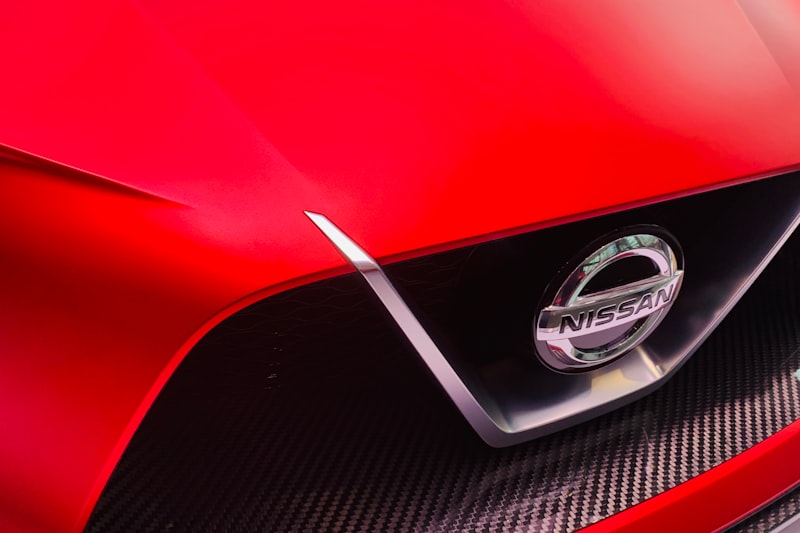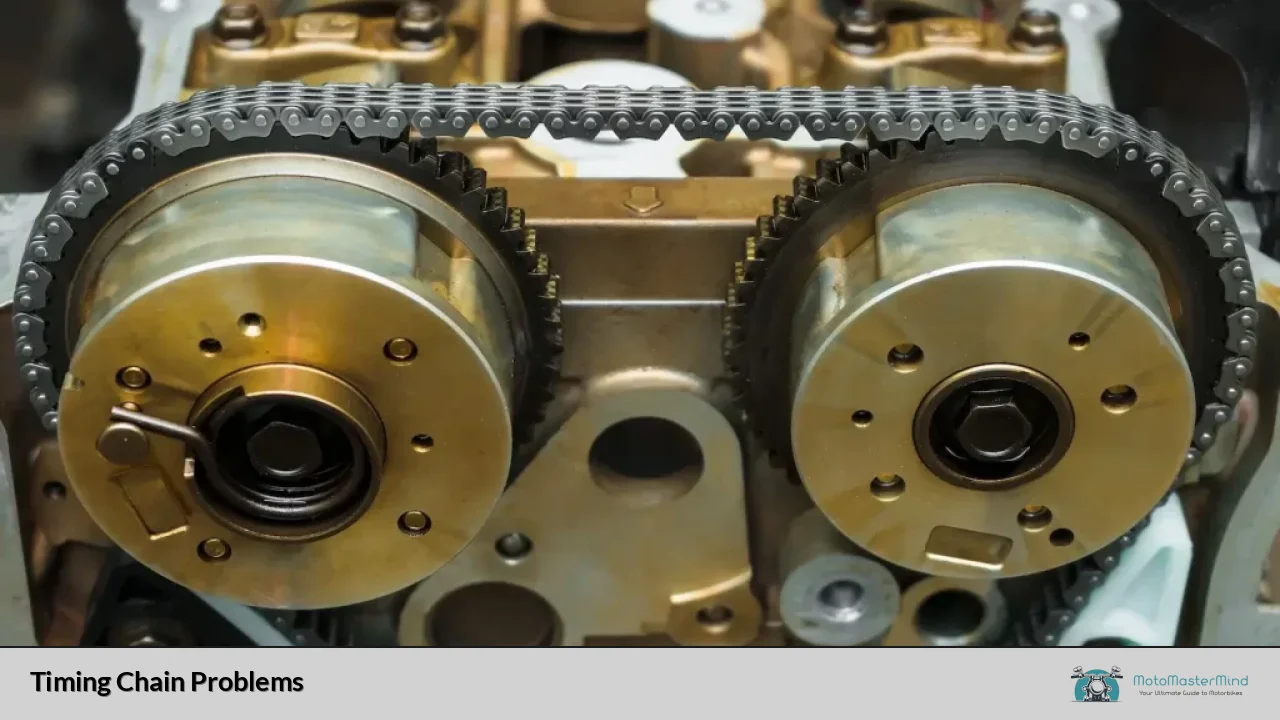When it comes to the intricate dance within your vehicle’s engine, few components play a more vital role than the timing chain. Like a conductor guiding a symphony, the timing chain orchestrates the precise synchronization between the engine’s valves and pistons. However, just like any crucial part, timing chains can encounter problems that disrupt this harmonious performance.
One common issue plaguing timing chains is excessive wear and stretching. Over time, the continuous movement and strain on the chain can lead to elongation and slack, compromising its ability to maintain optimal tension. This can result in erratic engine performance, including misfires, reduced power, and even stalling. Furthermore, a loose timing chain can throw off the delicate timing sequence, potentially causing significant damage to the engine.

Another challenge arises from insufficient lubrication. The timing chain relies on a consistent flow of oil to reduce friction and maintain smooth operation. Inadequate lubrication can accelerate wear and increase the risk of premature failure. Contaminated or degraded oil, irregular oil changes, or faulty oil pumps are common culprits behind this problem. As the chain grinds away without proper lubrication, it can produce unsettling rattling noises, indicating a potential catastrophe looming under the hood.
Additionally, timing chain tensioners can present their own set of complications. These essential components ensure the chain remains taut and correctly positioned. However, tensioners can become worn or fail over time due to constant use and exposure to high temperatures. A malfunctioning tensioner may allow excess slack in the timing chain, leading to detrimental consequences for the engine’s performance and longevity.

Understanding the warning signs associated with timing chain issues can save you from an unexpected breakdown. Listen for unusual noises, such as rattling or clanking coming from the engine compartment. Keep an eye on engine performance indicators like reduced power, rough idling, or difficulty starting. If you notice any of these symptoms, seeking professional assistance promptly can help prevent further damage and costly repairs.
Unveiling the Silent Culprit: The Hidden Dangers of Timing Chain Problems
Have you ever wondered what keeps your car’s engine running smoothly? One vital component that often goes unnoticed is the timing chain. Now, you might be thinking, “What’s the big deal about a timing chain?” Well, let me tell you, it plays a crucial role in keeping your engine’s performance in check. However, despite its importance, timing chain problems can quietly wreak havoc on your vehicle.
Timing chains are responsible for synchronizing the camshaft and crankshaft, ensuring that the valves open and close at the right time. They are designed to last for a long time, but like any other part, they can wear out or become damaged over time. When this happens, it can lead to a host of issues that can leave you stranded on the side of the road.
One of the major dangers of timing chain problems is engine misalignment. As the timing chain stretches or wears out, it can cause the camshaft and crankshaft to fall out of sync. This results in the valves opening and closing at incorrect intervals, leading to poor engine performance, loss of power, and even engine stalling.
Furthermore, a failing timing chain can also cause severe engine damage. If the chain breaks while the engine is running, the pistons and valves can collide, causing bent valves, damaged pistons, and potentially catastrophic engine failure. The repair costs for such damage can be astronomical, not to mention the inconvenience and frustration of being without your vehicle for an extended period.
To make matters worse, timing chain problems are often difficult to detect early on. Unlike some components that give warning signs before failing completely, timing chains tend to fail suddenly and without much warning. That’s why regular maintenance and inspections are crucial to catch any potential issues before they escalate into costly repairs.
Don’t underestimate the significance of a timing chain in your car’s engine. The hidden dangers of timing chain problems can have a significant impact on your vehicle’s performance and your wallet. Stay proactive by scheduling regular maintenance checks and addressing any potential issues promptly. Taking care of your timing chain today will save you from unexpected breakdowns tomorrow.
Breaking Down the Costly Consequences of Timing Chain Failures
Introduction: Have you ever wondered what happens when the timing chain in your car fails? It may seem like a small component, but its role is crucial in synchronizing the engine’s internal components. When a timing chain fails, it can lead to a cascade of expensive consequences. In this article, we will break down the costly repercussions of timing chain failures and highlight why timely maintenance is essential.
The Domino Effect: Imagine a perfectly choreographed dance routine where every move is synchronized. That’s how a well-functioning timing chain operates in your engine. It ensures that the camshaft and crankshaft rotate harmoniously, allowing valves to open and close precisely at the right moment. But, when the timing chain breaks, this synchronization collapses, causing chaos within the engine.
Engine Damage: A failed timing chain can result in severe engine damage. As the chain snaps, the camshaft and crankshaft lose their coordination, leading to the collision of pistons and valves. This collision can bend or break valves, damage cylinder heads, and even harm the pistons themselves. Repairing these damages requires extensive labor and costly replacement parts, driving up the overall repair bill significantly.
Reduced Fuel Efficiency: Timing chain failures not only affect the engine’s health but also impact your wallet at the gas pump. When the timing chain is compromised, the engine’s efficiency decreases, resulting in reduced fuel economy. Your car may start guzzling more fuel than usual, translating into frequent trips to the gas station and an empty pocket.
Towing and Stranded Situations: Picture yourself on a road trip, miles away from home, when suddenly your timing chain gives way. The engine stalls, leaving you stranded on the side of the road. Besides the inconvenience and frustration, you may now find yourself in need of a tow truck to rescue your immobilized vehicle. Towing services are not cheap, and the unexpected expense can add to the already costly consequences of timing chain failures.
Conclusion:
Timing Chain Troubles: A Growing Concern for Car Owners
Have you ever wondered what makes your car’s engine tick? Well, one crucial component that plays a vital role in the smooth operation of your vehicle is the timing chain. However, in recent times, timing chain troubles have become a growing concern for many car owners. Let’s delve into the details and understand why this issue has garnered attention.
Firstly, let’s grasp the concept of a timing chain. Think of it as the conductor of an orchestra, ensuring that all the moving parts of your engine work in perfect harmony. The timing chain connects the crankshaft (which powers the engine) to the camshaft (which controls the opening and closing of the engine valves). This synchronization is crucial for proper intake of air and fuel, as well as the expulsion of exhaust gases.
Now, you might be wondering about the troubles associated with timing chains. Over time, these chains can experience wear and tear due to constant use and lack of regular maintenance. If not addressed promptly, they can stretch, become loose, or even break. Such issues can lead to a multitude of problems, including engine misfires, decreased power, poor fuel efficiency, and in severe cases, complete engine failure.

One reason behind this growing concern is the shift towards using timing chains instead of timing belts in modern cars. While timing belts are known for their durability, timing chains were introduced to enhance longevity and reduce the need for frequent replacement. However, they come with their own set of challenges. Unlike belts, chains require lubrication and regular inspections to ensure they remain in optimal condition.
Moreover, improper oil changes and low-quality lubricants can contribute to timing chain troubles. Insufficient lubrication causes increased friction between the chain and its components, accelerating wear and tear. Additionally, delayed or neglected maintenance intervals can exacerbate the problem, making it more challenging and expensive to fix.
Revolutionary Solutions on the Horizon: Tackling Timing Chain Problems in Automotive Industry
Introduction:
Are you tired of dealing with timing chain issues in your car? You’re not alone. The automotive industry has long struggled with timing chain problems, causing headaches for car owners and mechanics alike. But fear not, revolutionary solutions are on the horizon to address these persistent challenges. In this article, we will explore the innovative approaches being developed to tackle timing chain problems and bring relief to drivers everywhere.
The Need for Revolutionary Solutions:
Timing chains play a crucial role in synchronizing the movement of an engine’s internal components. However, over time, these chains can experience wear and tear, leading to performance issues. Common problems include chain stretching, tensioner failure, and guide wear, which can result in engine damage and costly repairs. Recognizing the need for more robust and durable solutions, manufacturers have been working tirelessly to revolutionize timing chain technology.
Advanced Materials and Design:
One promising avenue for resolving timing chain problems lies in the use of advanced materials and design techniques. Manufacturers are exploring high-strength alloys and improved lubrication systems to enhance chain durability and reduce friction. By employing innovative materials like carbon fiber-reinforced polymers, they aim to create chains that are not only stronger but also lighter, contributing to overall engine efficiency.
Smart Timing Chain Systems:
Another groundbreaking development is the advent of smart timing chain systems. These intelligent systems utilize sensors and actuators to monitor chain tension, detect abnormalities, and make real-time adjustments. This proactive approach allows for early detection of potential issues, minimizing the risk of catastrophic failures. Additionally, smart systems can adapt to varying driving conditions, optimizing performance and extending the lifespan of timing chains.
Hybrid and Electric Technology:
With the rise of hybrid and electric vehicles, the automotive industry is leveraging this shift to address timing chain challenges. Electric powertrains eliminate the need for traditional timing chains altogether, replacing them with more reliable alternatives such as direct-drive systems or timing belts. Hybrid vehicles, on the other hand, employ smaller engines with reduced stresses on timing chains, thus improving their longevity and reliability.
Conclusion:
As automotive technology continues to advance, revolutionary solutions for timing chain problems are emerging. Through the use of advanced materials, smart systems, and the integration of hybrid and electric technology, manufacturers are striving to provide long-lasting and trouble-free driving experiences. With these innovations on the horizon, drivers can look forward to a future where timing chain issues become a thing of the past. Get ready to embrace a new era of automotive reliability and performance!

